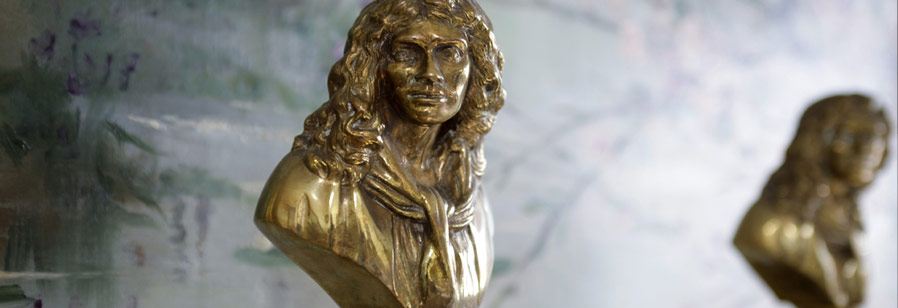Summary
Based on The Diary of Anne Frank, with the kind permission of the Anne Frank Foundation (Basel).
It is 1945 and Otto Frank, recently returned from the camps, spends his days on the platform of Amsterdam station, waiting for his two daughters. When he learns that Anne and Margot will never come back, he resolves to open the diary of his younger daughter, Anne, and he discovers to his stupefaction that he never really knew his daughter. Recounted by Anne, the years in hiding that brought nine very different people (three families) into close confinement in the Secret Annex, become funny and poignant, full of moments of panic but also of joy. To her father’s surprise, Anne reveals depth, wit and sexual maturity, and sometimes, too, a rebellious spirit that he had never suspected. The story of the love between a father and daughter goes on.
Publications
"I’ve read The Diary of Anne Frank several times."
This radiant book is more than a document: it’s a real work of literature, the work of a fourteen-year-old novelist with a gift for creating a proximity and disturbing intimacy with her characters, who are the people confined in the Annex. The proof of her status as a writer is that it’s never the same episodes that affect and move me. What irritated me at the age of fifteen (a girl with a girl’s concerns and also, her boundless energy) now overwhelm me. Today, when I read The Diary of Anne Frank,I’m attending the birth of a woman and the birth of a writer.
I am particularly grateful to the Anne Frank Foundation for allowing me to write this new version for the stage, because the whole world knows how scrupulously the members of the Foundation perpetuate the memory of Anne Frank, rejecting projects they think will tarnish that memory in any way.
The point of view adopted here is that of Otto Frank, Anne’s father, who arranged the Annex and moved his family into it followed by his friends. He was, unfortunately, the only one to return from the camps. After the War, Otto got a surprise when he read this diary, a surprise coupled with grief: his daughter was gone but her diary brought her to life with an intensity that was sometimes unbearable: he discovered her thoughts, her depth, her intense joys. Here was a father getting to know his daughter after her death, disconcerted by the pages about her burgeoning sexuality, upset by the conflict Anne had with her mother, but always touched, amused and dazzled.
Otto Frank fought to bring Anne’s dream to fruition: her dream of becoming a writer. In the face of obstacles, indifference and the prevailing frenzy to forget, he nevertheless managed to get The Diary of Anne Frank published in 1948, turning her into the most widely read fourteen-year-old writer in the world. Until 1980, he devoted his life to her memory, sometimes - in court - having to muffle deniers who claimed that Anne had not written the diary.
Now, on the boards of the Théâtre Rive Gauche, Anne and her housemates in the Annex, are given life, voice and body. Steve Suissa’s production and nine passionately committed actors, including Francis Huster and Roxane Duran (from Michael Haneke’s superb film, The White Ribbon) will captivate audiences and, I hope, fully convey the sense of gravity and the significance of joy.
Eric-Emmanuel Schmitt

